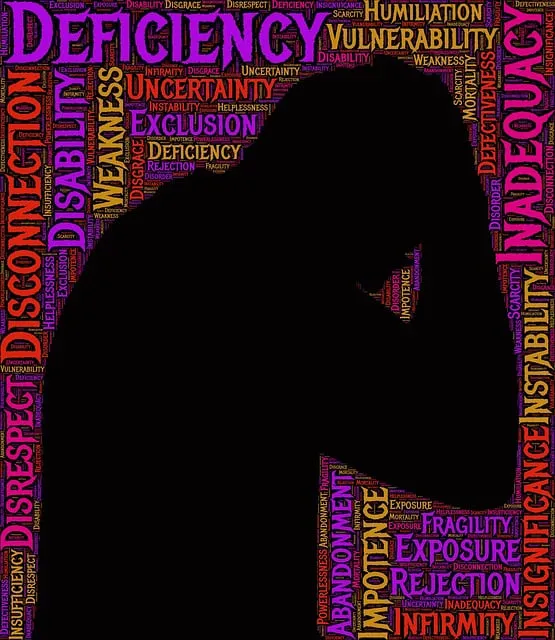Mental wellness apps, like those offered by Kaiser in Longmont, Colorado, are vital tools providing accessible resources for managing mental health. These apps feature crisis guidance, mood tracking, and personalized self-care recommendations, incorporating mindfulness exercises and community outreach to create supportive digital spaces. A comprehensive guide explores key components for developing effective mental wellness apps, focusing on evidence-based practices and personalized experiences. Kaiser's services in Longmont prioritize holistic well-being through public awareness campaigns, training, and coaching programs, addressing diverse mental health needs and reducing stigma.
“Uncovering the Potential of Mental Wellness Apps: A Comprehensive Journey. In today’s digital age, mental wellness apps are transforming healthcare access, especially in communities like Longmont. This article offers a holistic guide to developing effective solutions, inspired by institutions like Kaiser, renowned for their mental health services in the region. We explore key considerations, from user experience design to privacy, ensuring apps cater to diverse needs. By understanding the landscape of mental health services in Longmont, we aim to empower developers with strategies to create impactful and accessible tools.”
- Understanding Mental Wellness App Development: A Comprehensive Guide
- Exploring Kaiser's Role in Mental Health Services in Longmont
- Designing Effective Mental Wellness Apps: Key Considerations and Best Practices
Understanding Mental Wellness App Development: A Comprehensive Guide

Understanding Mental Wellness App Development: A Comprehensive Guide
In today’s digital age, mental wellness app development has emerged as a powerful tool to support individuals seeking guidance and resources for their mental health. These apps offer a wide range of features, from Crisis Intervention Guidance to Mental Wellness Journaling Exercise recommendations, all accessible at the touch of a button. They cater to diverse needs, whether it’s managing stress, tracking moods, or accessing professional help. Apps developed by renowned healthcare providers like Kaiser, which offers mental health services in Longmont, Colorado, can provide personalized experiences that enhance self-care practices.
By integrating features such as mindfulness exercises, meditation techniques, and community outreach program implementations, these apps create a supportive environment for users to navigate their mental wellness journeys. The guide below delves into the essential components of successful mental wellness app development, offering insights for creating effective tools that can positively impact users’ lives.
Exploring Kaiser's Role in Mental Health Services in Longmont

In Longmont, Kaiser’s role in mental health services is significant, offering a range of support to the community. The organization has been at the forefront of providing accessible and comprehensive care, addressing the growing need for mental wellness resources. With a focus on holistic well-being, Kaiser incorporates various initiatives such as public awareness campaigns, social skills training, and mental wellness coaching programs into their development strategies. These efforts not only cater to individual needs but also contribute to fostering a supportive environment that enhances community resilience.
By integrating these programs, Kaiser aims to improve mental health literacy and reduce the stigma associated with seeking help. The development of such initiatives underscores the organization’s commitment to meeting the diverse mental health needs of Longmont residents. Through innovative approaches, Kaiser strives to ensure that everyone has access to the tools and resources necessary for maintaining and improving their mental wellness.
Designing Effective Mental Wellness Apps: Key Considerations and Best Practices

Developing mental wellness apps requires a thoughtful approach to create effective tools that support users’ emotional well-being. One key consideration is integrating evidence-based practices, such as mindfulness meditation and self-care routines development for better mental health, which have been shown to improve user outcomes. Apps should offer personalized experiences, allowing users to tailor exercises and resources to their specific needs, especially when catering to diverse populations like those seeking Kaiser’s mental health services in Longmont.
Best practices include incorporating interactive features that engage users, such as tracking progress, setting achievable goals, and providing positive affirmations. Additionally, focusing on emotional healing processes through safe spaces for expression and community support can significantly enhance app effectiveness. By combining these strategies, developers can create apps that foster mental wellness, promote self-awareness, and encourage healthy coping mechanisms for all users.
Mental wellness app development is a burgeoning field, with innovative solutions like Kaiser’s services in Longmont leading the way in accessible mental healthcare. By integrating best practices and key considerations discussed in this guide, developers can create apps that effectively support users’ mental wellness journeys. Understanding user needs, prioritizing data privacy, and leveraging evidence-based techniques are essential steps to developing impactful and trusted mental wellness applications. So, whether you’re a developer or a mental health advocate, let this knowledge empower you to contribute to this transformative digital landscape, especially in areas like Longmont where access to services is crucial.






